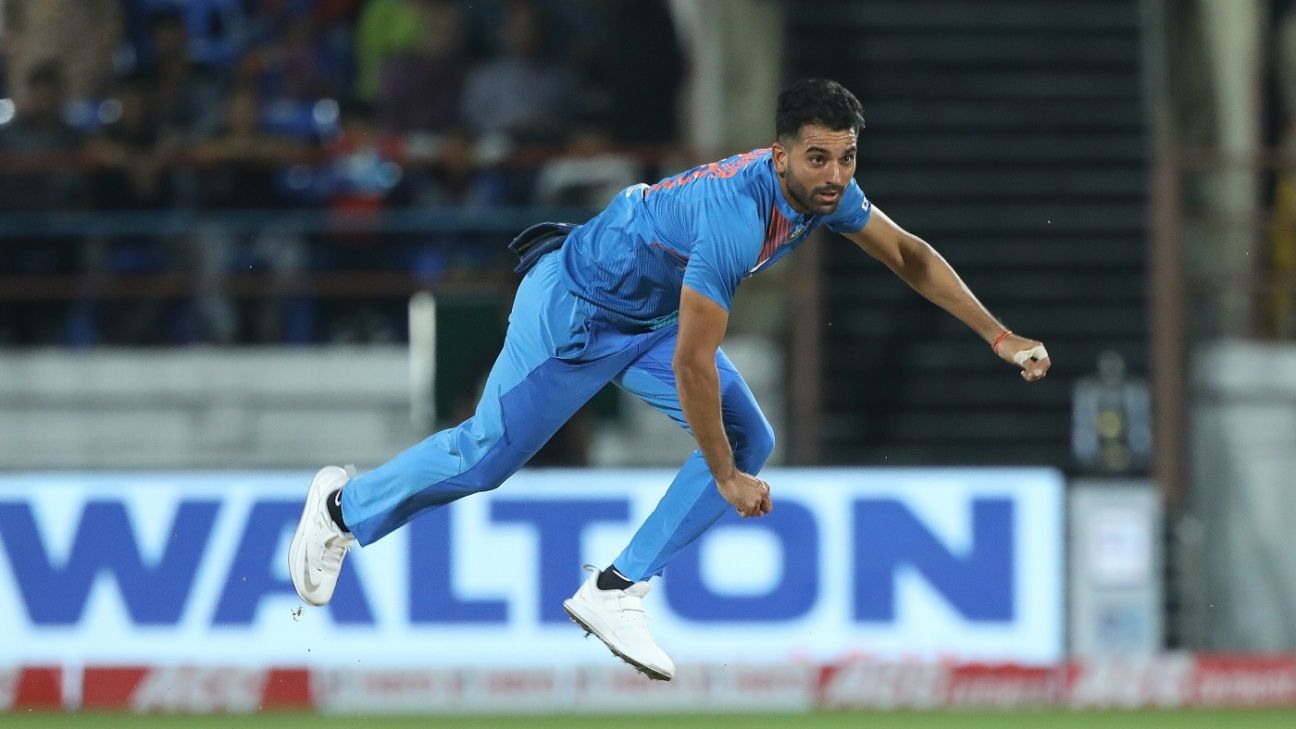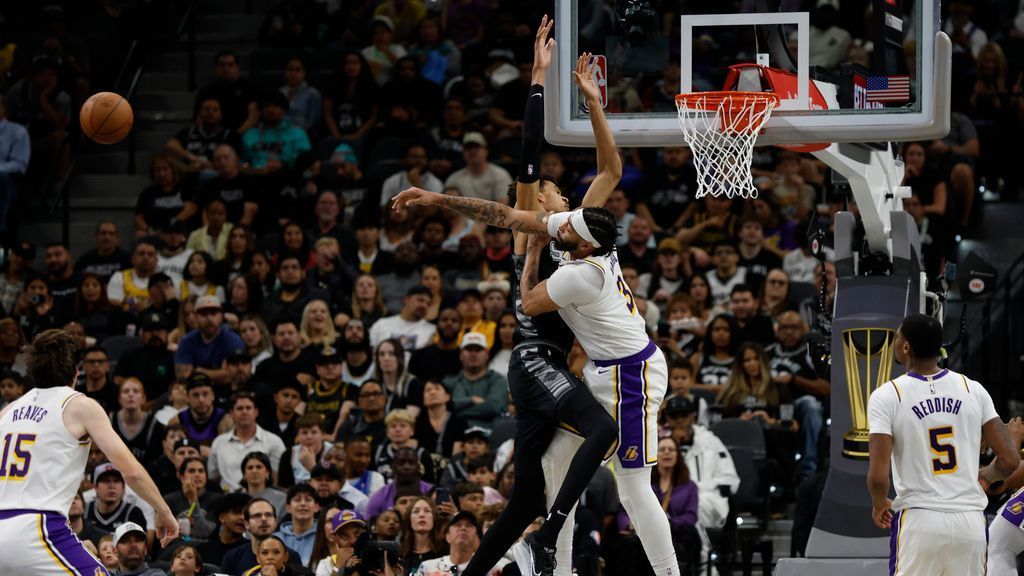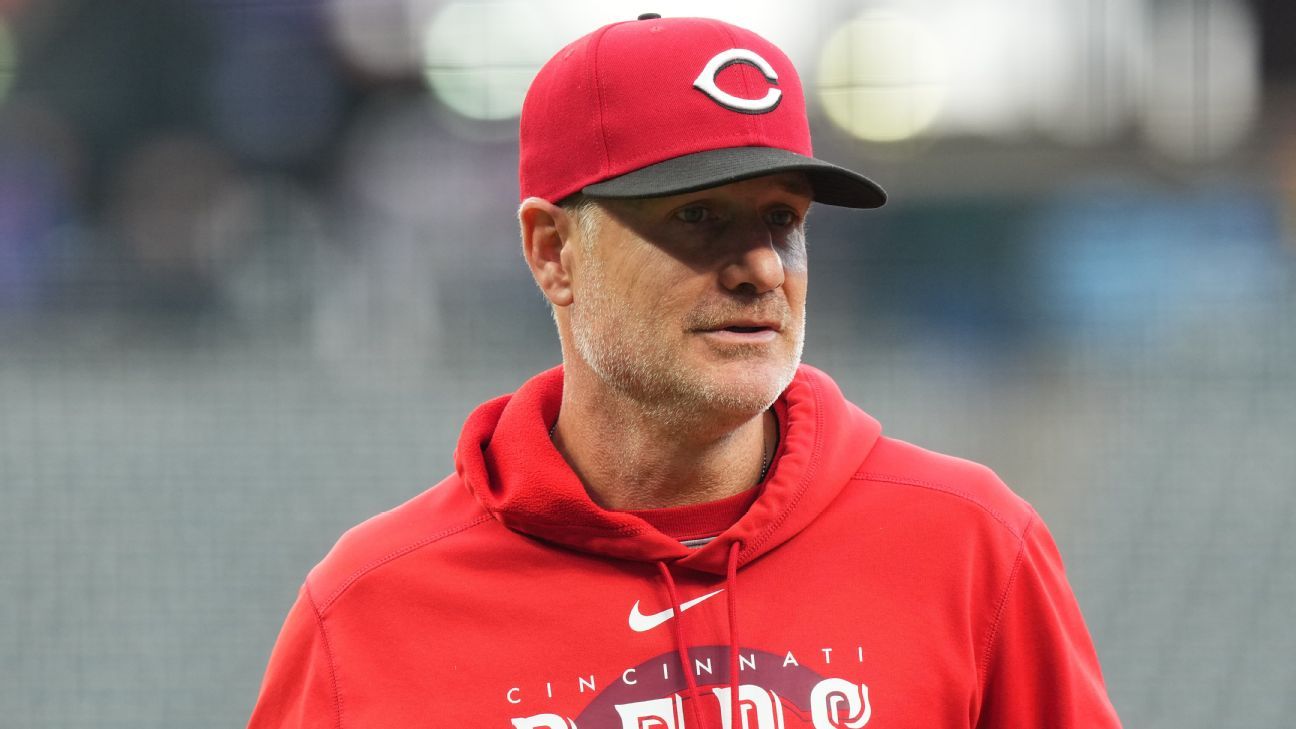
Since his debut in the second half of 2018, Deepak Chahar has made rapid strides to be among the near-certainties in India's T20I squad, while staking his claim to a regular spot in the ODI squad as well. Chahar enjoyed a particularly productive 2019 in the shortest format, for India as well as Chennai Super Kings in the IPL. That included a world-record haul of 6 for 7 against Bangladesh.
Chahar followed that performance up by turning out for Rajasthan, his state team, in India's domestic T20 competition, and continuing to take wickets in clusters, but the surfeit of cricket took a toll. Chahar was ruled out of India's deciding third ODI against West Indies with a stress fracture on his lower back, and is now on the rehabilitation road.
The experience has prompted Chahar to reconsider his schedule, and he said he would be more selective about the domestic matches he turns up for. Chahar had a particularly busy time in November and December. It began with a three-match T20I series against Bangladesh, and two days after his 6 for 7, he was turning out for Rajasthan in the Syed Mushtaq Ali Trophy. He played four T20 matches from November 12 to 17, and then three more from November 25 to 29. Subsequently, he was back in India colours for the T20I and ODI series against West Indies, from December 6, playing five matches before being ruled out of the final one.
"The stress fracture in my back is mainly due to playing excess matches," Chahar told The Telegraph. "Before the Ranji Trophy began, I was playing almost all matches. In fact, it's been happening like this for the past two years. So I have to be a bit selective now. Else, I won't be able to survive."
Chahar has spoken earlier of the work he had put in to increase his pace from the 120s (kph) to the high 130s. Now he says constant cricket has also brought his pace down.
"The year starts on a poor note, unfortunately, because of the injury," Chahar said. "My objective is to obviously keep performing better, but I will also be doing the required training and exercises to regain my lost pace. Since I was playing continuously, I had lost two-three kilometres [per hour] of pace."
Chief selector MSK Prasad had indicated Chahar could be out until March-April, but the seamer himself hasn't put a timeframe to his return. He made it clear, though, that his being selective with the matches he plays would not apply to the IPL.
"Match fitness is also important," Chahar said. "If you take proper rest and utilise your time properly, then the IPL is a really good platform to regain your rhythm. In two months, you have to play 14 matches in the IPL, which is not much.
"The problem was, after the Bangladesh series where we played three matches in seven days, I started playing the Syed Mushtaq Ali T20 Trophy where the gaps between each game were very short. So if I have to play, say eight to nine games in 12 days, that is more difficult. Therefore, in these cases, I need to be selective. These situations are more harmful to the body kyunki aap lagaatar khel rahe ho (because you are continuously playing).
"Besides, the schedule in the Ranji Trophy as also in the Vijay Hazare Trophy is such that sometimes you have to play back-to-back matches. I played four matches in five days in this season's Vijay Hazare Trophy [he played four List A games from October 1 to 6], and such a scenario may lead to injuries."















 Phone: (800) 737. 6040
Phone: (800) 737. 6040 Fax: (800) 825 5558
Fax: (800) 825 5558 Website:
Website:  Email:
Email: 






